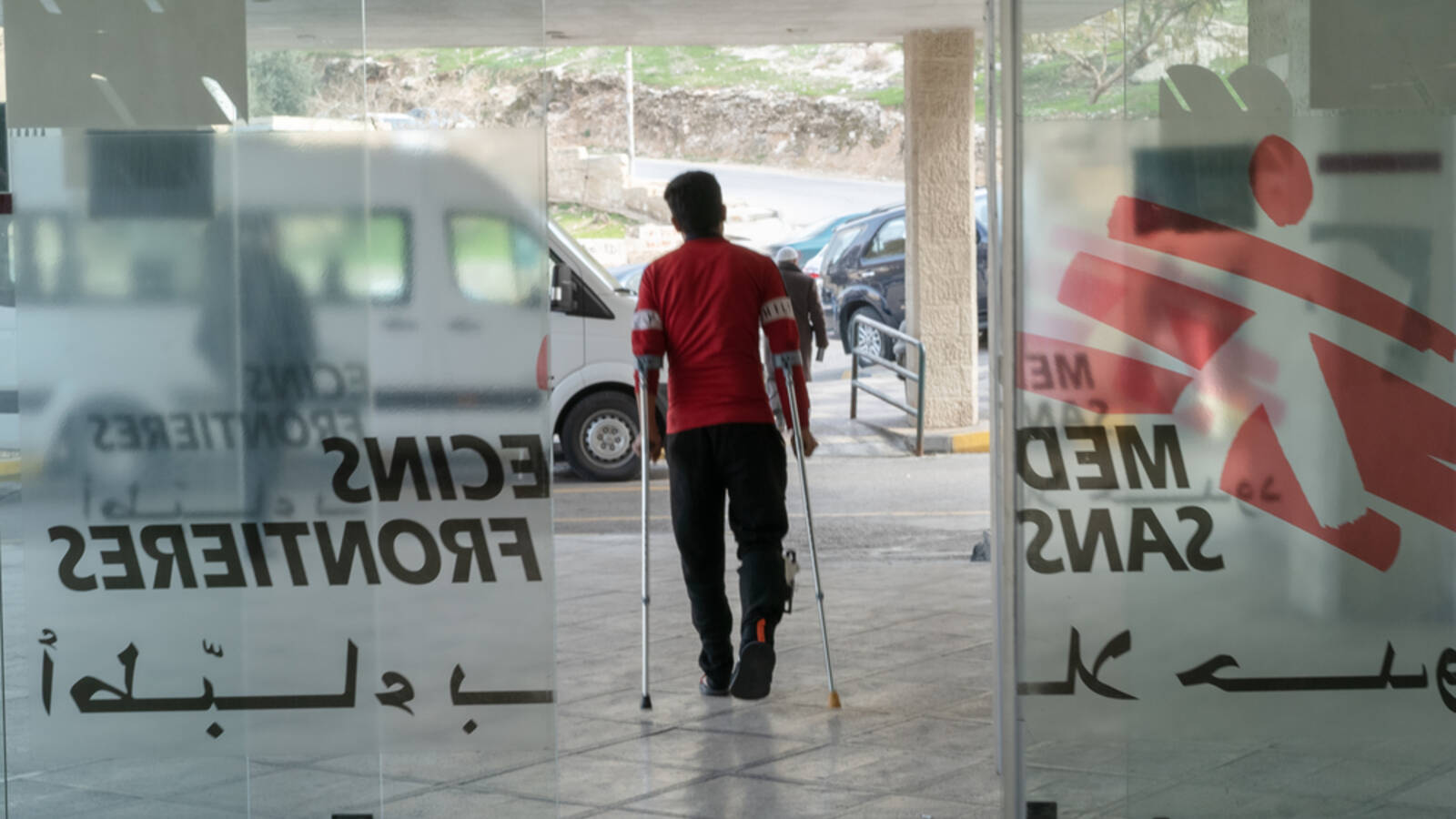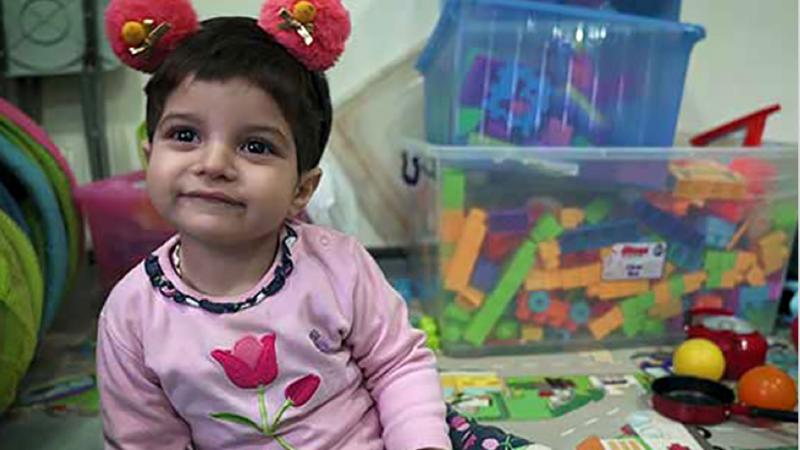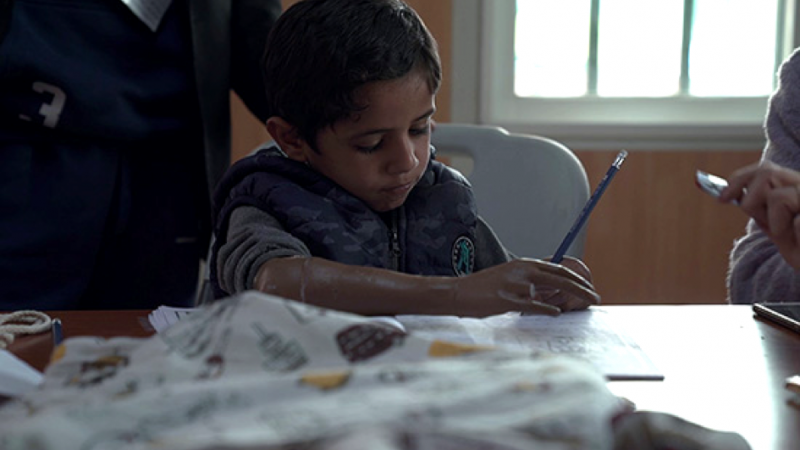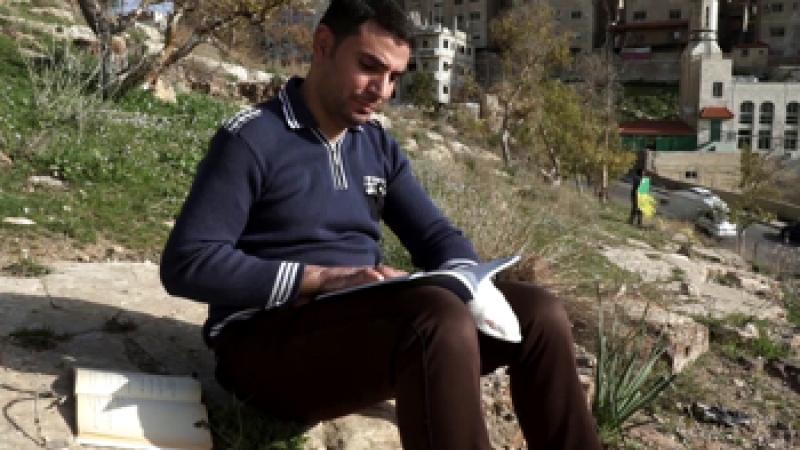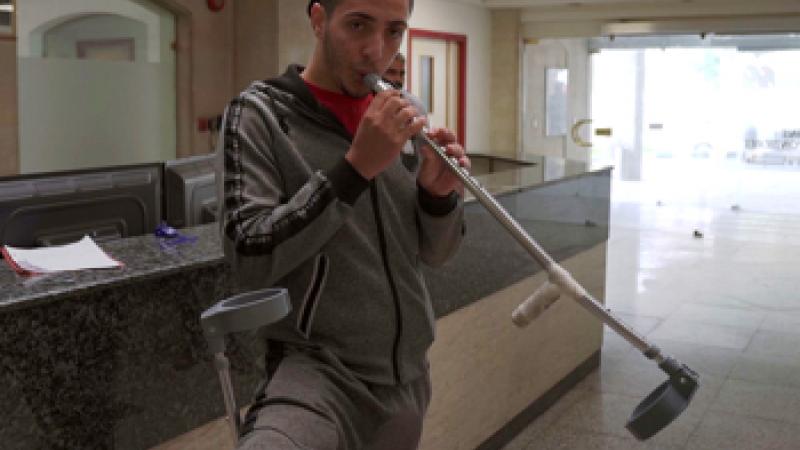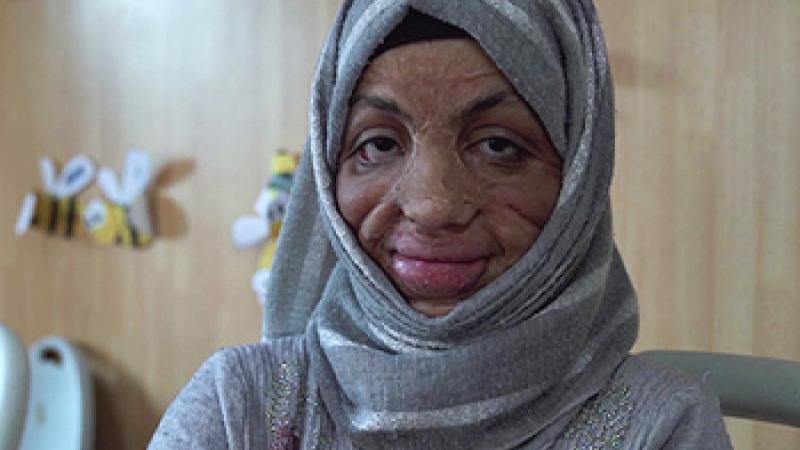Juana was just eight months old when her parents tried to flee Mosul, Iraq- which was under siege from the Islamic State group at the time.
In their attempt to escape, the young family hit a landmine- killing Juana’s father instantly, severely injuring Juana’s mother with shrapnel wounds to the chest and lungs, and leaving Juana with extreme nerve damage to her left leg.
Unable to leave, Juana’s grandparents tended to them for eighteen days, medicating their fevers and infections with paracetamol, and moving from house to house through a network of basements. They were refused treatment at the local hospitals, and Juana’s mother continued to lose blood and energy. They knew that she needed medical treatment desperately.
With no choices left, the family decided to flee again to improve their chances of survival. During this second attempted escape from the city, Juana’s mother and uncle were killed by snipers. She and her grandparents survived.
In Iraq, they sought private treatment for Juana. In addition to the nerve damage, Juana had a cleft palate opening at birth that required surgery. The costly surgery to the damage nerve was unsuccessful, and local doctors refused to operate on the cleft palate. They were then referred to the Reconstructive Surgery Programme, in Amman, Jordan.
When Juana and her grandmother, Salima, arrived to the Amman Hospital- where she was and is the youngest patient, at two years old- she weighed just under 8 kilos. She was not walking; she was not sleeping; she was not eating; and she was not laughing.
After several orthopedic surgeries, surgery on her cleft palate, and physiotherapy with her favourite therapist Yazan, Juana is now standing with the support of a walker and has taken her first steps at the RSP. With the help of a speech therapist she is also speaking her first words- ‘mama’, which she directs to her grandmother.
Without the support and generosity of people like you, without organizations like Médecins Sans Frontières (MSF) / Doctors Without Borders, and without programmes like the Reconstructive Surgery Programme, Juana would not have access to the medical care she received and continues to receive.
Day by day, Juana is evolving into an inquisitive, playful, social, and loving child. She no longer chooses to isolate herself, and no longer clings onto her grandmother in tears. Juana takes great pleasure in making the morning rounds through the hospital wards, waving and greeting all those who cross her path on the way to the playground, where she can easily spend all day on the swings, making friends and new childhood memories.
With your support, we are able to ensure that patients like Juana- and their families- are taken care of, as they continue to heal and recover from the wounds of war.
